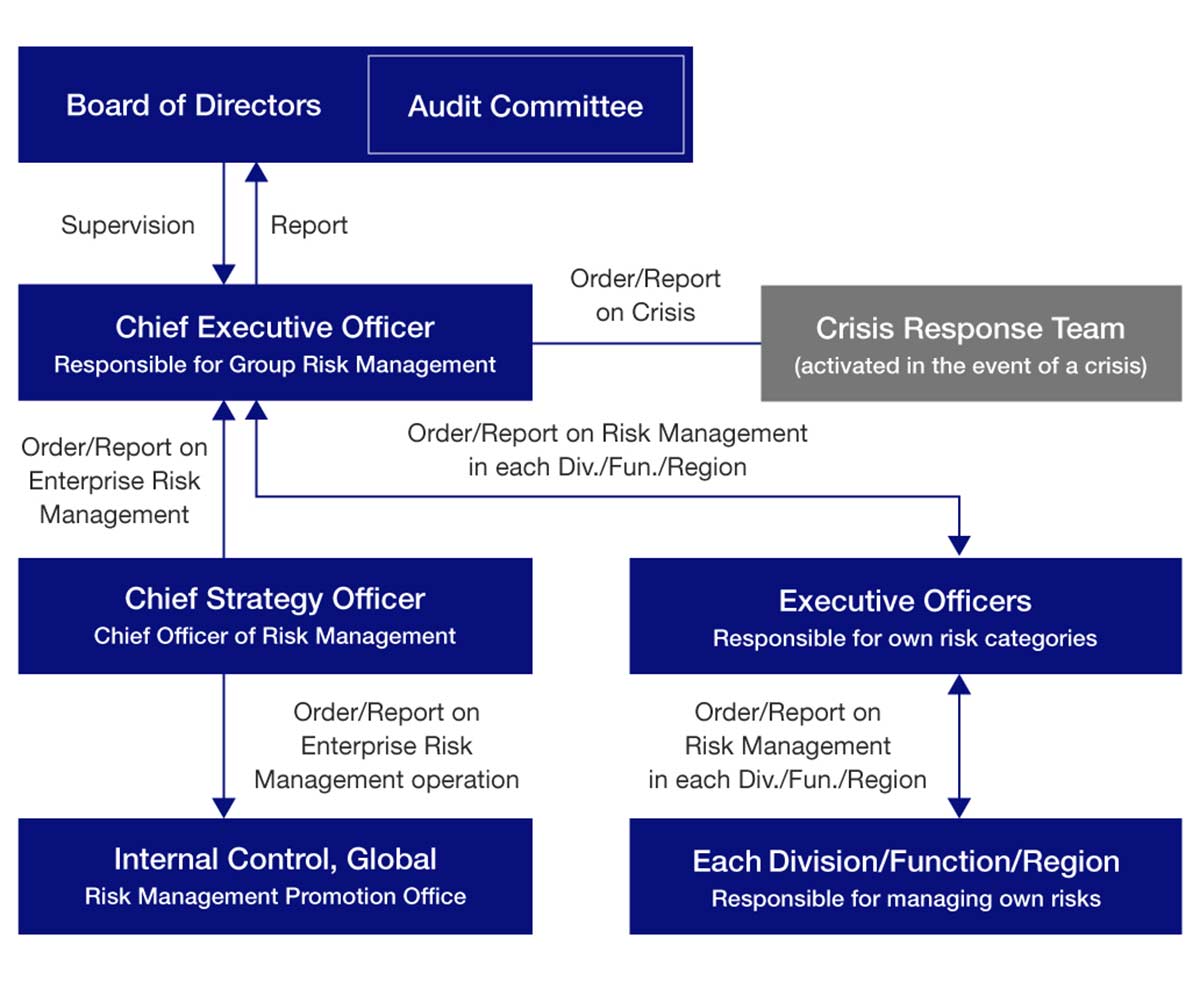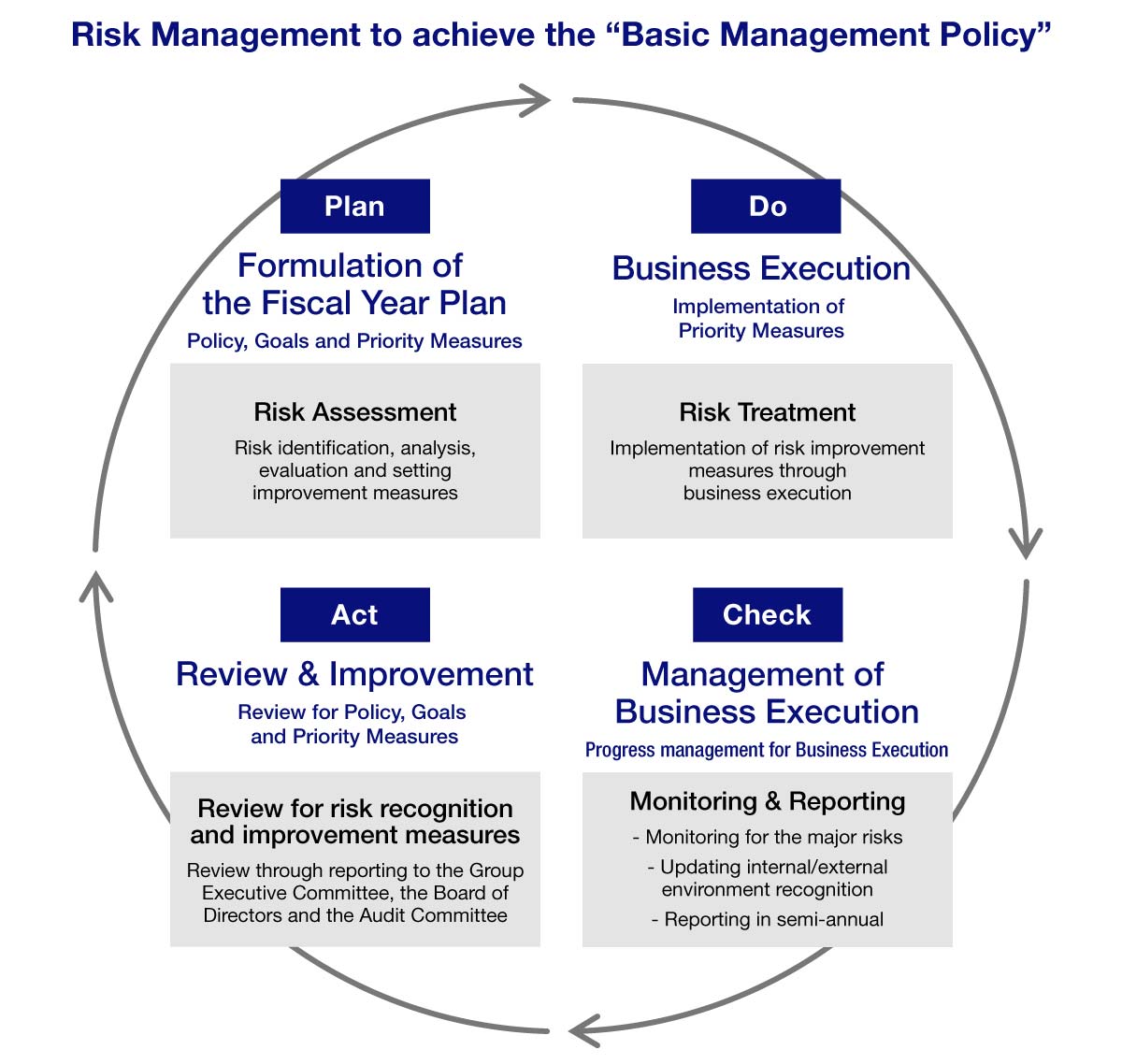Risk Management System
Basic Approach and Policy
The Olympus Group implements risk management initiatives to realize its basic management policies, which include its Corporate Philosophy and management strategy. Specifically, based on the "Policy of Risk Management and Crisis Response" and related rules, the Olympus Group undertakes risk management from the perspective of both "offense" through active and appropriate risk taking leading to sustainable growth and value creation for the Company and "defense" to prevent illegalities and accidents.
A crisis management process has also been established to minimize the impact of unforeseen incidents on corporate value.
Policy of Risk Management and Crisis Response
Promotion Structure
Risk Management Structure

The risk management structure is a global risk management structure that defines categories of risks that could affect our business strategy and the achievement of our business objectives, and clarifies the Executive Officer in charge of each risk category (to ensure risk assurance). Each officer is responsible for carrying out all activities necessary to keep the risks under their control within acceptable limits (e.g., development of organizational structure, development of processes, and formulation and implementation of priority measures).
Structure and Initiatives
Risk Management
The risk management process is based on the PDCA cycle of risk assessment (risk identification, analysis, evaluation, and establishment of risk countermeasures), implementation of risk countermeasures, monitoring and reporting, and improvement. Risk assessment is linked to the annual planning process, and risks are evaluated using evaluation criteria common to the entire company to visualize and centrally manage company-wide risks. In addition, the status of the Group's response to major risks is regularly reported to the Group Executive Committee, the Board of Directors, and the Audit Committee for continuous monitoring.

Crisis Management
Any major incident that is highly likely to affect business management in the Olympus Group is reported promptly to the president and other senior management and handled appropriately by the managers in coordination with relevant divisions.
As for the global spread of COVID-19, The Olympus Group strives for thorough infection prevention measures and has set measures such as maintaining physical distance and wearing masks in the workplace, ventilation of facilities and self-restraint on business trips and events. In addition, a global task force will be established, if necessary, to ensure business continuity.
We have continued to implement training, demonstrations and seminars online for customers, and we strive to provide solutions responding to the new environment. In Japan, since February 2020, Central Task Force led by the director in charge of Japan headquarters, set a ceiling on the percentage of employees who come into the office, and established guidelines that incorporate the "new lifestyle” to create an environment in which employees can work with peace of mind. In addition, Olympus Group employees have been vaccinated against the novel coronavirus in their workplaces since July 2021. We also aim to contribute to the early containment of COVID-19 in Japan by proceeding with the third round of vaccinations at workplaces starting in April 2022.
Further, we revised our business continuity plans (BCPs), which conventionally focused on natural disasters, such as earthquakes and storms, to include pandemics, as represented by COVID-19. We are also building viable BCPs with even more focus on the entire value chain. As a part of this effort, we are constantly implementing our disaster prevention and reduction activities such as by formulating the "BCP/BCM Development Guideline". We provide training and drills to employees to improve effectiveness of our BCPs.
We continuously implement every possible measure to keep our products and services available to our customers, giving the highest priority to the health and safety of our employees, medical professionals, patients, and communities.

